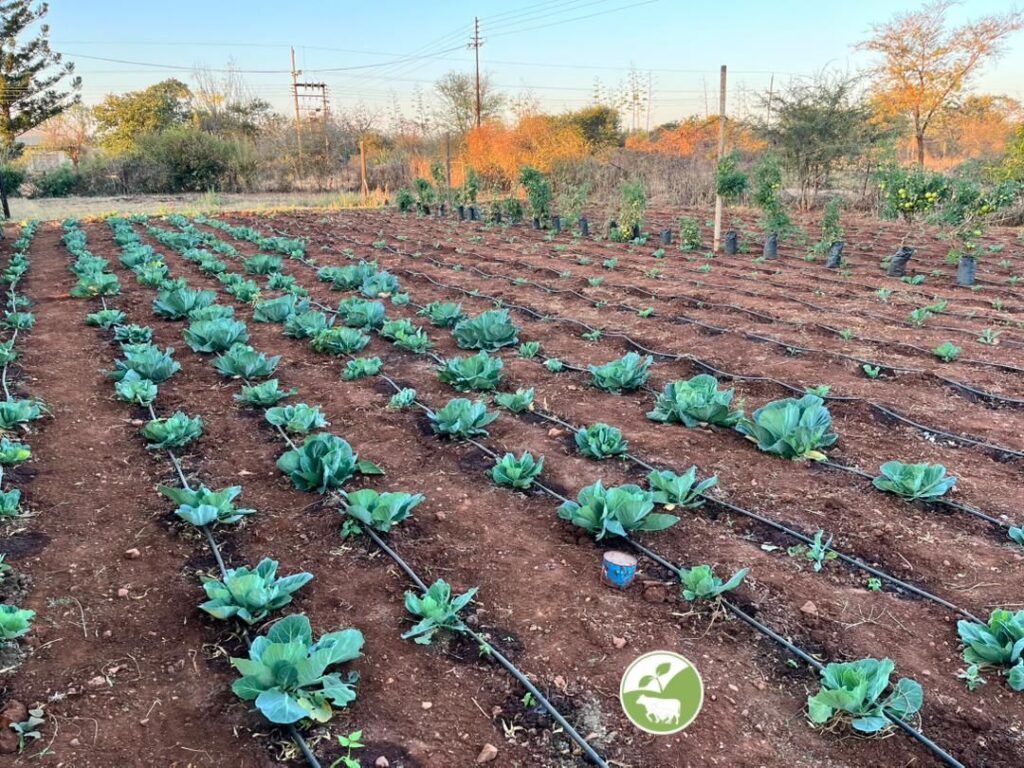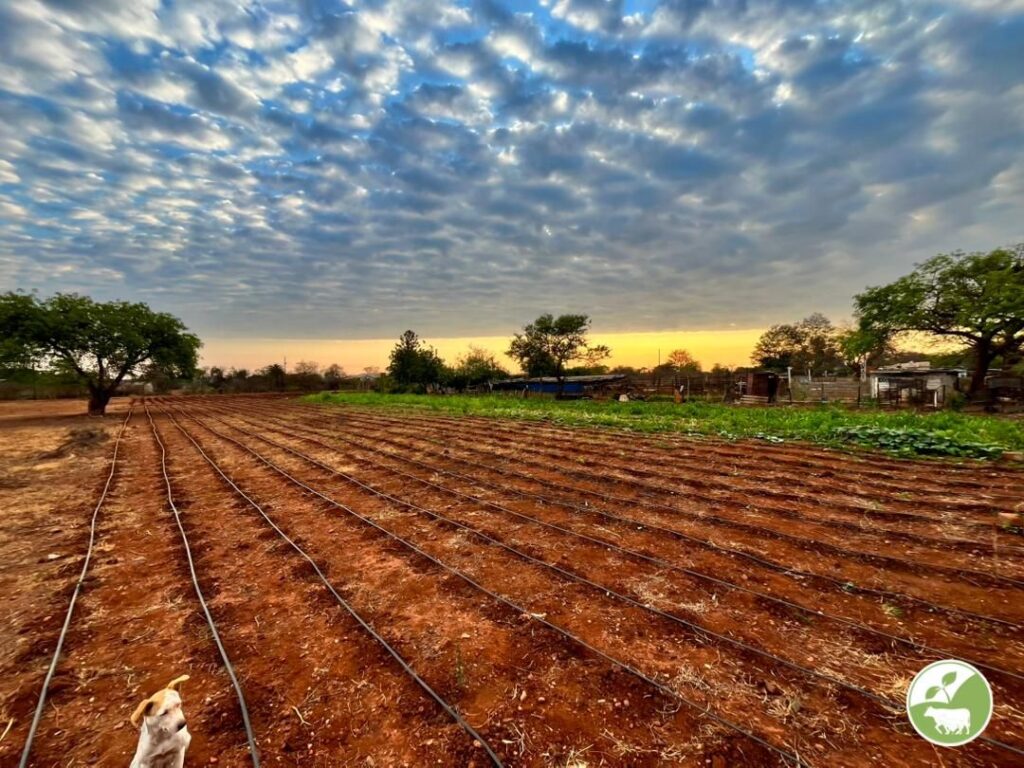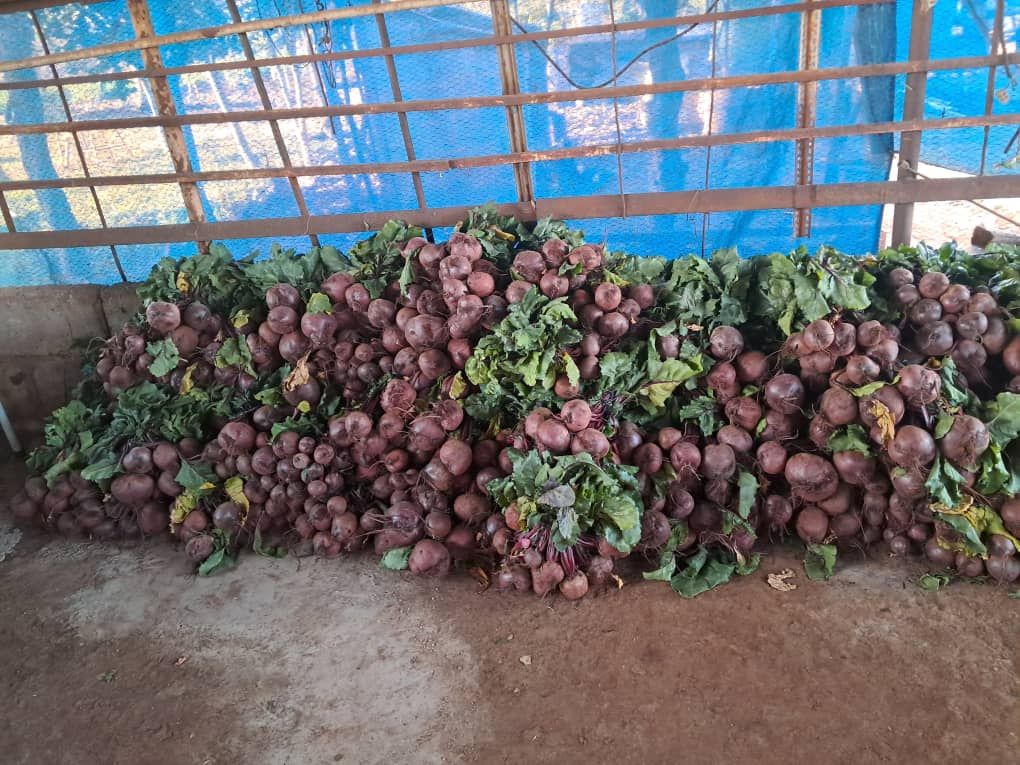Beyond Soil and Seed: Mimi Matobo’s Playbook for Climate Resilience in Zimbabwean Farming
In Umguza, 30-year-old organic farmer Luzibo “Mimi” Matobo blends tradition, innovation, and experimentation to thrive in the face of climate uncertainty.

Loraine Phiri
In the rural district of Umguza, just outside Bulawayo, 30-year-old farmer Luzibo “Mimi” Matobo has learned that farming today is not just about soil, seed, water, and sunshine it is about resilience. On a five-acre plot, Matobo grows a variety of vegetables, balancing the demands of the land with the unpredictable realities of a changing climate.
“Climate change has definitely affected me from my choice in crops at particular times of the year to the active portion of my land,” Matobo said. “I am limited to the amount of water I have access to, so not all of the land is continuously in use. This affects my income, which then affects the entire farming process as well.”

Matobo’s journey into full-time farming began almost a decade ago. “Initially when I started farming, I was what they call a ‘cell phone farmer,’” she explained. “I was working my corporate job, sending seeds, instructing from a distance. Eventually, I made the decision to farm full-time.”
Though farming runs in her family, it was not her first career choice. “When I went to school, I studied psychology and history. I had no intention of being a farmer at least not as young as I am. But when I lived abroad, things changed, and I realized I had a home and land waiting for me. I fast-tracked my retirement plan and actively started doing what I had silently been doing, farming.”
For Matobo, the shifting climate in Zimbabwe has forced innovation and creativity. Her approach is practical and rooted in experimentation.
“In my experience, the best way to overcome climate change challenges is to do what you can with what you have. Adapt quickly and always be willing to learn,” she said. Her strategies include choosing drought-resistant seed varieties, matching crops to seasonal temperatures, and experimenting on small plots before expanding production.
“I will try something like radish, which is not common here I plant one or two lines to see how it reacts in my environment,” she added. “That way, I get a realistic outlook before planting on a larger scale.”
Water access remains one of her biggest challenges. With no access to river water yet, Matobo relies on rainwater and heavily on borehole water, which she estimates makes up “about 98%” of her irrigation during this time of the year. Depending on costs and terrain, she alternates between drip irrigation and sprinklers, while encouraging resource-sharing among other farmers in Umguza.

“Because there are many people with boreholes and sizeable land, I approach those who are not actively farming,” she said. “We buy drip equipment together, farm together, and share techniques. In four to six months, I get the chance to teach them and show them how to farm that way, we all benefit.”
Despite her embrace of modern farming methods, Matobo still values traditional knowledge. “When growing maize, we use the ‘three sisters’ method planting maize, butternut, and green beans together. The beans fix nitrogen in the soil, the butternut’s broad leaves retain moisture and suppress weeds, and the maize provides the tall stalks for the beans to climb,” she said. “It’s something my grandmother used, and I still practice it sometimes.”
She also uses shade cloths to moderate temperature and protect crops from excessive sun, ridges to improve drainage and prevent waterlogging, and mulching to conserve soil moisture and regulate soil temperature. “Being familiar with how each crop reacts is critical,” she said. “For example, while I use mulching to retain moisture, our area has a lot of termites, so with some crops it doesn’t work as effectively as it does with others.”
Matobo believes that farming is a constant learning process. “With farming, you learn from your mistakes every day. You pay your fees every day,” she added. “That’s why it is important to research, experiment, and make informed decisions.”
Matobo’s work often brings her into contact with older farmers, and she approaches those interactions with respect and a touch of confidence.
“When I get the opportunity to teach the elders, I simply say, ‘The proof of the pudding is in the eating. Let me do it my way. If I fail, you will be right. But if I succeed, you will have a good harvest to look forward to,” she said with a laugh. “When I put my integrity on the line, that usually gets a better response.”
For younger or aspiring farmers, Matobo’s advice is simple but profound: “Run your own race,” she said. “We learn from others, yes, but your journey is your own. Farming teaches you something new every day. Be willing to learn, adapt, ask others, and use the internet. There is no single right or wrong way just the way that works for you.”

When asked what she would tell someone in the city about how climate change is affecting their food and families, Matobo didn’t hesitate.
“Climate change affects everyone even those who do not farm,” she said. “What happens in the field determines what ends up on your plate. Droughts, heatwaves, and unpredictable rains reduce yields and make it harder for farmers to grow enough healthy food. That’s why food prices go up, and why the quality of food can suffer.”
But Matobo believes the issue goes beyond the weather. “People must invest in understanding what goes into their food,” she urged. “When consumers demand cheap food, someone along the value chain is forced to cut corners. It might be the farmer using too much fertilizer, or the supplier choosing speed over quality.”
As an organic farmer in Umguza, she remains passionate about producing food the right way, even when it’s not easy. “It’s difficult to make the market understand that my vegetables won’t grow fast or look perfectly shiny because they are organic,” she explained. “But they will last longer, even without refrigeration, and they’re more resilient because they’re naturally grown.”
Matobo hopes consumers will begin to value the connection between climate, farming practices, and food quality. “We can take shortcuts and flood crops with chemicals to meet demand, but that’s not sustainable,” she said. “As farmers, we have a duty to feed the nation with food that’s nutritious and as consumers, people have a duty to appreciate what that really takes.”
If you would like to learn more or order fresh produce from Luzibo “Mimi” Matobo, visit her website at www.shepherdheader.store





